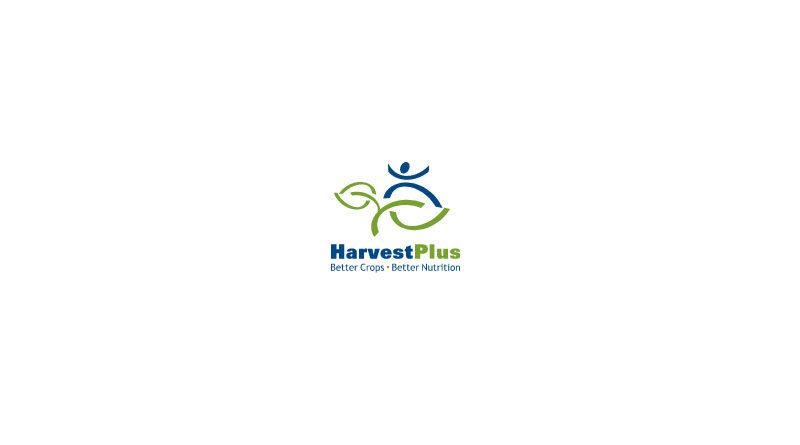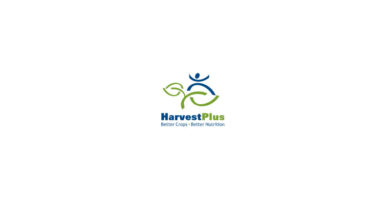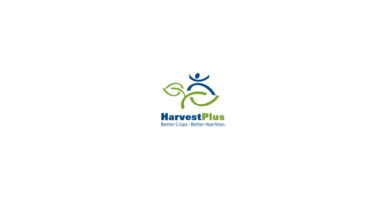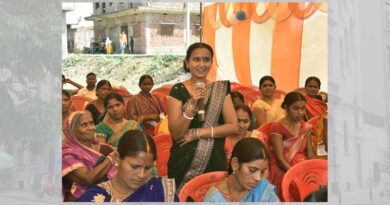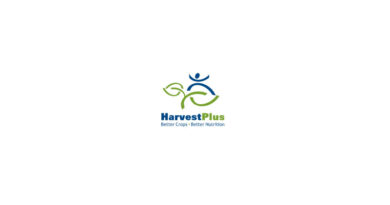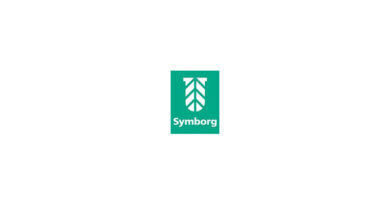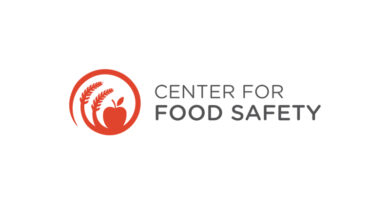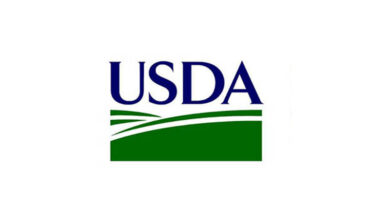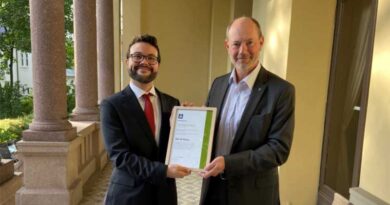Ugandan Lead Mothers: Promoting Nutrition for Healthier Communities
26 July 2021, Uganda: Tumusiime Teopista is a lead mother from Kahunge sub-county, Kamwenge district in Uganda. As a lead mother, she educates mothers and caregivers on recommended feeding practices for children and women of reproductive age, promotes hygiene and sanitation, and actively works to improve the availability of vitamin A-enriched orange sweet potato (OSP), and iron-enriched beans in her community.
Tumusiime helps mothers and caregivers access OSP vines, and iron bean and vegetable seeds through linking them to suppliers in the community, and fosters changes in feeding practices through cooking demonstrations.
Also Read: The Centre And State Government Have Started Various Schemes
Teopista provided an example of the positive impact of her work as a lead mother in her community: “Nalongo Gawda was a lady in my community who gave birth to twins but could not feed them well. As a result, her twins looked malnourished and weak. Being the community lead mother, I took the initiative to educate Nalongo and began monitoring the family’s health. After about six months, I noticed a big change in the health of Nalongo and her twins. The children looked much healthier, and so was their mother,” said Teopista.
“Due to the work of lead mothers, there has also been significant improvement regarding sanitation in our community,” Teopista noted.
Tushabira Irene is another lead mother trained by HarvestPlus. She works in Kiriagara Health Centre as a cleaner, and after completing her day’s work, she takes time to attend to women who come to the local health center. She trains and educates mothers on child feeding practices and nutritional benefits of biofortified crops. With permission from the health center, Tushabira set up an OSP demonstration garden at which mothers learn how to cultivate OSP. Through the demonstrations, she provides mothers with the necessary information and materials for planting these crops.
HarvestPlus and the Lead Mother approach
This life-improving work has mainly been supported by the United States Agency for International Development (USAID) under the United States Feed the Future Initiative, through two successive projects: the current USAID Meals for Nutrition Biofortified Solutions in Uganda (MENU) and the previous USAID Developing and Delivering Biofortified Crops (DDBC) project.
In early 2014, project beneficiary communities held public dialogues to explore community-based solutions for scaling up biofortified crops. The discussions revealed that one way to increase the uptake of biofortified crops was to build a cadre of women responsible for continually leading, teaching, and supporting communities with maternal health and feeding practices. The group of women were called lead mothers.
HarvestPlus empowers farmer groups to select lead mothers who reach out to farmers and caregivers in their communities. The lead mothers then serve as nutrition and health champions to boost the consumption of biofortified crops in their respective communities.
The primary duty of lead mothers is to continually communicate the importance of OSP and iron beans to beneficiary households. Other responsibilities include promoting the cultivation and consumption of the available biofortified crops within the farming community, promoting good hygiene and sanitation practices to all, and recommending appropriate feeding practices for children and women of reproductive age through demonstrations.
Under the leadership of their lead mothers, some groups have even developed community dramas and songs to promote OSP and iron beans. These songs are frequently performed during community gatherings. The songs promote biofortified crops while simultaneously addressing other pertinent cultural beliefs, misconceptions, and gender-related issues within the society.
So far, HarvestPlus has supported communities to choose over 900 voluntary lead mothers. The ladies are selected by the farmer groups and receive training in infant and young child feeding (IYCF) practices and various other aspects of maternal nutrition, including the consumption of nutrient-dense foods such as OSP and iron beans. Under the training, the lead mothers also learn about good agronomic practices and techniques, effective communication methods, and the importance of water, hygiene, and sanitation for good health.
To date, seven iron bean varieties and six vitamin A OSP varieties have been released to farmers in Uganda through the USAID-funded projects. By the end of 2020, more than 1.1 smallholder farming households—comprising 5.5 million people, or nearly 12 percent of Uganda’s population—were growing and eating these OSP varieties, while 810,000 households (over 4 million people) were growing iron beans.
The vitamin A OSP varieties were developed in partnership with the International Potato Center (CIP) and Uganda’s National Agricultural Research Organization (NARO), while the varieties of iron-biofortified beans were developed with NARO and the Alliance of Bioversity International and CIAT. All varieties were developed through conventional (non-GMO) breeding. Apart from their nutritional benefits, these OSP and iron bean varieties are also bred to be early-maturing and high-yielding, while some varieties are also drought tolerant—all are traits valued by farmers and essential to drive uptake.
Creating a blueprint to replicate and scale up
The idea of lead mothers promoting biofortified crops turned out to be a sustainable community-based approach that can significantly improve the diets of infants and young children within the community. The success of this approach has led HarvestPlus to map and implement this concept in other countries.
For HarvestPlus, mapping the lead mother concept to different settings has been an enriching experience full of crucial learning and takeaways. HarvestPlus learned that allowing communities to select their lead mothers empowered the community members and created a sense of program ownership. Additionally, working on the lead mothers approach enabled HarvestPlus to disseminate training and information materials to ladies with complete transparency.
Adopting the lead mother approach encouraged the development of new farming groups within the region and triggered new livelihood projects for the community at large. It also became apparent that community-based approaches such as this one could facilitate building linkages to government structures and programs. These linkages will, in turn, enhance the cultural, political, and economic sustainability of the desired interventions within the community.
As experience has shown, the concept of lead mothers is a feasible strategy in sustaining the IYCF practices while promoting nutrient-rich foods like OSP and iron beans in local communities.

